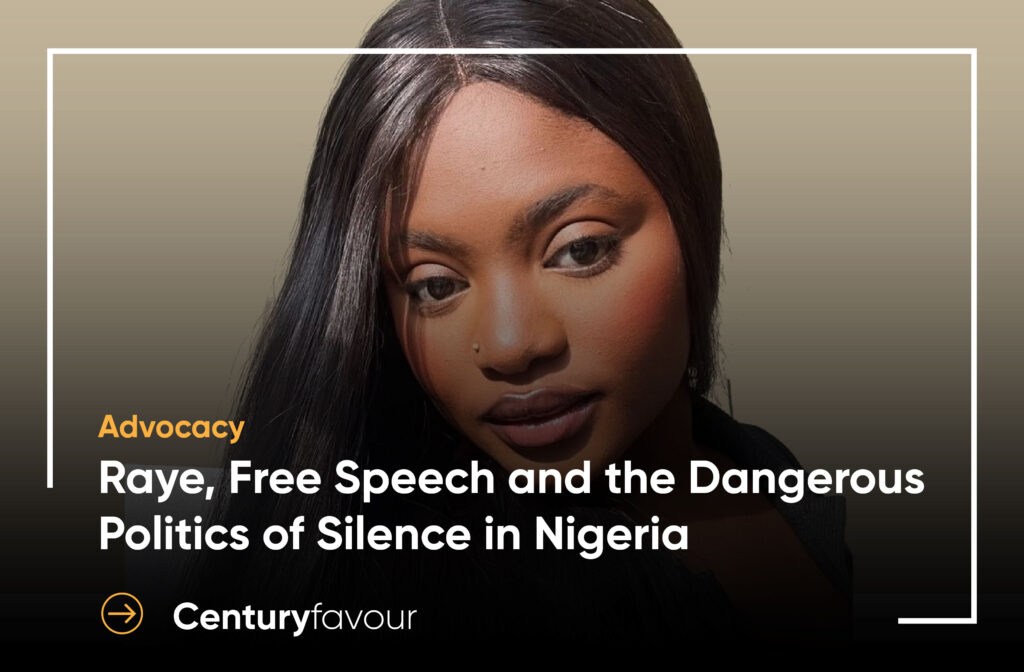On the surface, the controversy surrounding Raye, the corps member who publicly described the President as a “terrible leader” might seem like just another social media drama. However, beneath the headlines and political reactions lies a deeper issue: the growing culture of political intolerance, suppression of dissent, and the dangerous role of partisanship in shielding governance from accountability.
The responses to Raye’s remarks have predictably fallen along partisan lines. Supporters of President Tinubu see it as an unwarranted attack on a government they believe is making necessary reforms. Critics, on the other hand, see her as a courageous voice speaking truth to power. But if we take a step back and strip away the political biases, we must ask: Where is Nigeria today? Is the country on the right path? Is the government delivering on its promises? And most importantly, do Nigerians still have the right to freely express their concerns without fear of retribution?
Nigeria by the Numbers: A Nation in Crisis
Political arguments are often driven by emotion, but data provides a more objective lens to assess governance.
- Inflation and Economic Hardship: Nigeria’s inflation rate has risen to 29.9% as of January 2024, the highest in decades. The cost of living crisis is worsening, with food inflation at a staggering 35.4%, making basic necessities unaffordable for millions. (Source: National Bureau of Statistics)
- Unemployment and Poverty: Despite promises of job creation, Nigeria’s unemployment rate stands at 33.3%, and over 133 million Nigerians live in multidimensional poverty. (Source: World Bank)
- Security Failures: Insecurity remains a major issue, with over 6,800 Nigerians killed in violent incidents in 2023 alone. Kidnappings, banditry, and insurgency continue to thrive with little accountability. (Source: SBM Intelligence)
- Governance and Transparency: Nigeria ranked 150 out of 180 countries in the 2023 Corruption Perceptions Index, reinforcing concerns about weak institutions and poor governance. (Source: Transparency International)
These are not just numbers—they represent real struggles, real lives affected by failed leadership. Whether you voted for the government or not, this data paints a clear picture: Nigeria is not where it should be.
The Politics of Perception: Why Partisanship is a Trap
The way people interpret Raye’s case depends on their political allegiance. This is not new. Over the years, Nigerian politics has conditioned citizens to judge events based on party lines rather than objective truth.
This is a dangerous mindset because it allows politicians to use partisanship as a shield against accountability. When citizens become more loyal to politicians than to principles, they enable bad policies, corruption, and incompetence.
Politicians love this divide because it allows them to avoid hard questions. Instead of addressing governance failures, they can rally supporters around “us vs. them” narratives.
But here’s the truth:
- If you supported Tinubu, you should be the first to demand results from his administration. You voted for him based on promises, and if those promises are not fulfilled, loyalty should not stop you from holding him accountable.
- If you did not vote for him, your duty is not just to criticise but to push for systemic reforms that ensure better governance beyond just elections.
Why Free Speech Matters: Today It’s Raye, Tomorrow It’s You
 Beyond partisanship, there is a larger threat at play: the suppression of free speech.
Beyond partisanship, there is a larger threat at play: the suppression of free speech.
In democracies, the right to express dissent is sacrosanct. When a government begins to threaten, punish, or silence critics, it signals a shift towards authoritarianism.
Let’s be clear:
- Raye did not commit a crime. She expressed an opinion based on her experience and frustration.
- The government should be more concerned about addressing her concerns rather than punishing her for speaking out.
This is not the first time a Nigerian citizen has faced intimidation for speaking out: Several social media users were arrested under the Cybercrime Act, which is increasingly being weaponised against dissent.
If Nigerians normalize this suppression, it will only get worse. Today, it is Raye. Tomorrow, it could be you.
Accountability is the Best Gift to Any Government
One of the biggest misconceptions in Nigerian politics is that once a government is elected, criticism is no longer valid. This is false.
- Holding leaders accountable is not an act of disloyalty: it is an act of patriotism.
- Politicians are not in office to receive praise; they are in office to deliver results.
- If a government is doing well, the data will show it. If they are failing, no amount of propaganda can erase reality.
Blind loyalty is a threat to democracy. Nigerians must demand results, not excuses.
Silencing Dissent is a Road to Fascism
If a country does not allow free speech, it will eventually descend into anarchy or fascism. History has shown us what happens when governments suppress criticism: In Nigeria’s military era, free speech was criminalized, and opposition voices were either jailed or exiled.
Nigeria must not return to those dark days.
What Must Be Done?
- Defend Free Speech – Every Nigerian, regardless of political affiliation, must push back against the culture of intimidation.
- Reject Partisan Politics – Demand accountability based on performance, not party loyalty.
- Support Active Citizenship – Encourage more people to speak out, vote, and participate in governance.
- Push for Stronger Institutions – Nigeria needs judicial and electoral reforms to ensure democracy works for the people.
This is bigger than Raye. It is about the future of Nigeria. If Nigerians allow politicians to dictate what they can or cannot say, the country is headed for dangerous times.
Nigeria will not improve if people are forced into silence. It will improve when citizens demand better, speak truth to power, and refuse to be intimidated.
So, whether you agree with Raye’s statement or not, the real question is this:
Do you want to live in a country where speaking your mind is a crime?
If the answer is no, then now is the time to speak up. Because silence is never an option.

About the Author
Century Favour is an Entrepreneur, Strategy, Technology, Marketing and Creative professional passionate about driving economic & social impact. Through his ventures (Endgame The Strategy Company, Do take action & centuryfavour.com) he works to ensure that People, Businesses, Governments & Non-Profits grow, succeed, achieve their strategic objectives, drive sustainable development and positively shape the future of the people & communities they serve.

About the Author
Century Favour is an Entrepreneur, Strategy, Technology, Marketing and Creative professional passionate about driving economic & social impact. Through his ventures (Endgame The Strategy Company, Do take action & centuryfavour.com) he works to ensure that People, Businesses, Governments & Non-Profits grow, succeed, achieve their strategic objectives, drive sustainable development and positively shape the future of the people & communities they serve.